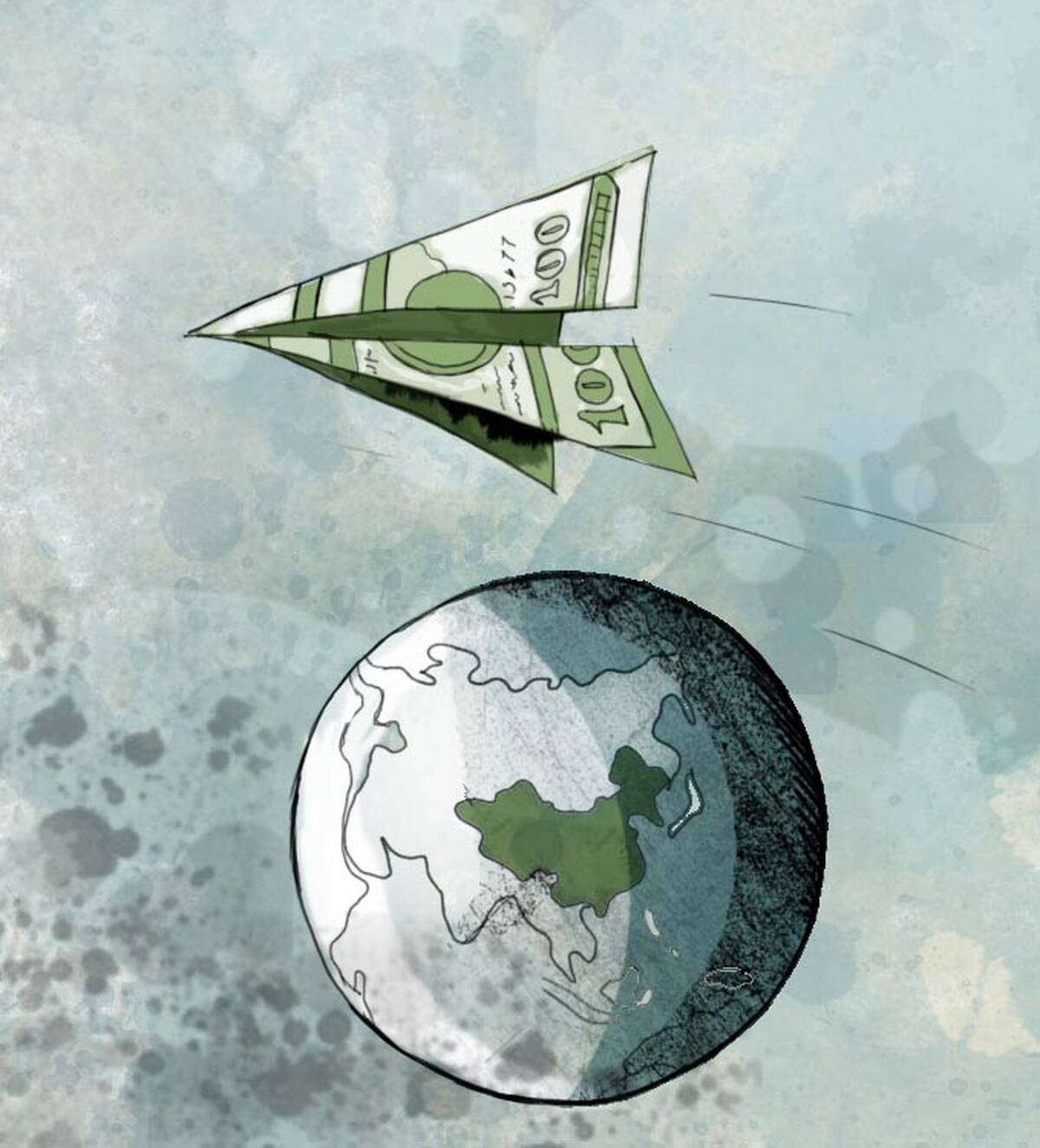Featured Faculty
CME Group/John F. Sandner Professor of Finance; Co-Director, Financial Institutions and Markets Research Center

Yevgenia Nayberg
Many people would no doubt like to forget all about the Great Recession. The blame has been pinned, squarely and often, on inadequate oversight of U.S. financial institutions, which created ever more complex and risky mortgage instruments, lured people to buy homes they could not afford, and brought the economy crashing to the ground.
But Ravi Jagannathan, a professor of finance at the Kellogg School of Management, believes this is only part of the story. And if we do not acknowledge the true cause of the financial crisis, he says, we do so at our own peril: “Solutions based on inadequate understanding of the issues involved,” Jagannathan says, “will likely lead to even bigger problems down the road.”
Jagannathan, along with Mudit Kapoor of the Indian School of Business and Ernst Schaumburg of the Federal Reserve Bank of New York, argues that the financial crisis that gripped the U.S. was primarily a symptom of ongoing major changes afoot in the world. Globalization has created massive shifts in the labor supply in developing countries—and the inadequate responses to these shifts are the real culprits behind the recession.
“Policymakers will have to keep an eye to potential triggers and happenings taking a global view, not just focus on what is happening locally in markets.”
The reasoning goes like this: Technological advances and globalization sparked “a huge and rapid increase” in the labor supply from workers in the developing world, especially in China. But without any domestic financial markets capable of absorbing the new wealth these workers generated, large amounts of money flowed into the U.S. For its part, the U.S. had no controls in place to prevent financial institutions from finding creative new ways to accommodate the influx of cash.
In 1980, China made up barely 2% of the world’s GDP. Just 30 years later, the country had become the world’s second-biggest economy, surpassing Japan. During the period from 1990 to 2007, China’s urban population more than doubled, growing by nearly 300 million people—most of whom effectively became part of the Western world’s labor force. At the same time, per capita income in urban areas tripled.
Ordinarily, the researchers write, increased labor supply in developing countries should resulted in “significant sections of the population in developed countries experiencing a decline in their living standards as more and more manufacturing and service jobs are outsourced.”
But thanks to a combination of factors—including a frugal culture and no social security system—these new urban Chinese workers saved their earnings instead of spending them. And because the dollar “remains the effective reserve currency of the world,” their savings flowed straight to the U.S., making us the beneficiaries of China’s newfound wealth. “The foreign reserve holdings of U.S. Dollars,” the researchers write, “which had been at less than 11% of U.S. GDP prior to 2000, grew rapidly after 2002; in fact they almost doubled over the 5-year period from 2002 to 2007.”
Meanwhile, here in the U.S., a combination of Wall Street behavior, low interest rates, safe-harbor rules for investing in high-risk debt, and implicit government guarantees to Freddie Mac and Fannie Mae sent investments gushing into real estate. A bubble market ensued, and Americans suffered under the illusion that we could buy whatever our hearts desired. Municipalities’ pockets swelled from real estate taxes. Spending, and borrowing, spun out of control. In other words, the researchers write, cash flowing to the U.S. from overseas helped obscure “the real structural changes that were taking place in the world economy.”
The bubble eventually burst, Jagannathan and his colleagues assert, when economic growth in developing countries caused commodity prices to rise. U.S. wages grew modestly, but the price of food and energy grew more quickly. “By mid 2007,” the researchers write, “many subprime households were effectively left with the choice between filling their trucks and fridges or paying their mortgages.” Homeowners began defaulting; foreclosures skyrocketed; housing prices plummeted. And then, as interest rates on adjustable-rate mortgages began resetting, homeowners who were counting on housing prices to continue appreciating so that they could refinance and take advantage of low teaser rates, were not able to do so. People were priced out of their homes, and the situation snowballed. The U.S. economy sputtered.
Subsequent fixes, such as they were, focused mainly on attempting to reform Wall Street. But according to Jagannathan’s reasoning, simply “fixing” Wall Street is a Band-Aid. “We are in an open economy subject to global forces,” he says. “We have to adjust to that. Policymakers will have to keep an eye to potential triggers and happenings taking a global view, not just focus on what is happening locally in markets.”
Real recovery, Jagannathan argues, requires policies in the U.S. and abroad that take account of the new global reality. These will include increasing capital flow into developing countries, perhaps by transitioning to alternate reserve currencies so that the dollar is not the sole repository for the world’s savings. China will have to grow its domestic consumption, and Western economies may have to come to terms with costlier commodities. Ultimately, Jagannathan concludes, the future will depend on “the development of improved risk management in the broadest sense in order to ensure financial stability and prosperity going forward.”
For Jagannathan, the analysis shows that in an interconnected world with an open economy, Keynesian policies will no longer be as effective as they were in the past. “[For] any policy that stimulates demand, the benefit will be to other countries in the world, so the effect will be dissipated,” he says. “That’s an implication of the fact that we’ve become more of an open economy.”
Jagannathan, Ravi, Mudit Kapoor, and Ernst Schaumburg. Forthcoming. “Causes of the Great Recession of 2007-9: The Financial Crisis Was the Symptom, Not the Disease! Journal of Financial Intermediation.